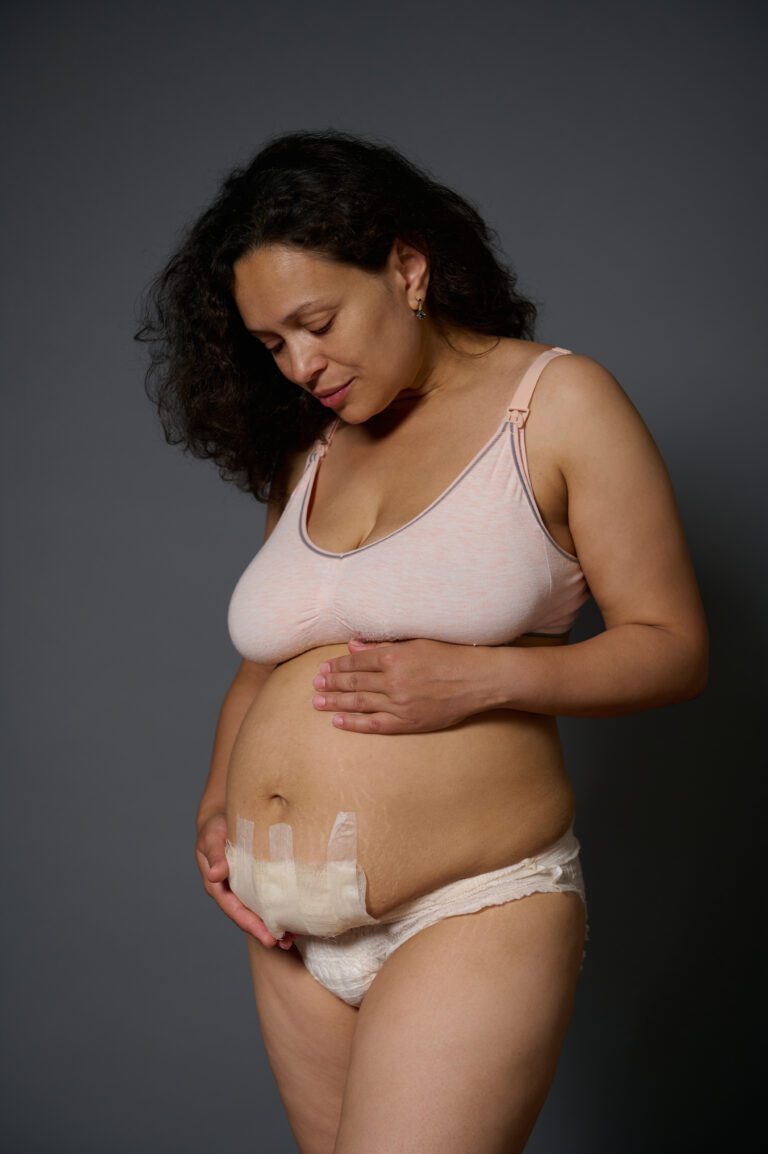Women typically aren’t prepared for recovery from childbirth. Here’s what you can expect for your postpartum recovery.
Twenty-five years after the birth of my first child, I can still remember how awful I felt. Sure I was excited about this beautiful baby girl that had miraculously and painfully emerged from my body. But I wasn’t prepared for the icky feelings from my body that followed. And I’m a nurse and midwife!
Women typically aren’t prepared for recovery from childbirth, according to research published in Obstetrics & Gynecology. Some women told researchers this lack of preparation left them feeling less satisfied with their healthcare providers and compelled some to skip their postpartum check-ups.
Fewer women are taking childbirth courses, and recovery from pregnancy, labor and birth can almost seem like a marathon! Experts estimate that as many as 40% of mothers are skipping postpartum care, which can put moms at risk especially if they’re dealing with chronic health conditions such as diabetes or high blood pressure.
Your First Postpartum Visit: 3 Weeks Postbirth
ACOG now recommends that postpartum care should be an ongoing process, rather than a single visit at 6 weeks postpartum, and that all women have a follow up appointment with their pregnancy care providers within the first three weeks postpartum. Many pregnancy care providers are concerned with contraception to avoid a subsequent pregnancy too soon after birth.
If you birthed vaginally, expect to spend 1-2 days at the hospital post-birth, and if all goes well, resume regular activities within just a few weeks. If baby was born via cesarean, you’ll spend up to 3-4 days in the hospital and it will take up to 8 weeks for you to recover from this major abdominal surgery. Still, no two people recover the same way, and no one knows your body better than you—so listen to those twinges, pains, and sore areas—and be gentle and nurturing with yourself after birthing.
Envision Your Recovery
Labor is short compared to the much longer recovery period. Healthcare providers often focus more on prenatal care and tend to skip over what happens following childbirth.
Below is a list of questions for you to take to your next prenatal appointment. It’s easier to learn what is normal about how your body will change and discuss with your pregnancy care provider before you give birth. Then, once you’re home with your new wiggly bundle that is your baby, you’re less to likely to experience anxiety. You’ll be empowered to take action.
In the rush to get out of hospital, you may forget or simply fail to ask these questions – and then wonder if what you’re experiencing at home is “normal.” Take notes now to prevent anxiety once you’re tucked away safely at home with that new wiggly bundle that is your baby.
Questions Women Ask About Postpartum Recovery
- How much will I bleed after giving birth? What’s normal? How much bleeding is too much and who do I call if that happens?
- What should I expect my perineum (“down there”) to feel like after birth?
- If I have an episiotomy or tear, what will that feel like as it’s healing, and how do I help promote healing?
- What are “after pains” and how long may they last?
- How soon should my abdomen return to its pre-pregnancy shape and size? What will it feel like immediately after birth?
- What changes can I expect in my breasts if I’m breastfeeding? If I decide not to breastfeed, how do I care for my breasts, and how will they feel?
- How do I prevent engorgement in my breasts when breastfeeding?
- Will I be able to use the bathroom as normal? When will it feel normal again? What problems should I look for?
- What’s the best way to lose the pregnancy weight?
- How soon can I start exercising again? Are any exercises off limits following birth?
- What about sex after birth? How soon can I resume intercourse, and is there anything special I need to know about or plan for?
- Is there anything I should avoid doing for any period of time following baby’s birth, and if so, why?
Recover from Birthing
- Whether baby is born via vaginal or cesarean birth, prepare for your body’s recovery by having these supplies on hand in the hospital and at home:
- Common pain relievers
- Postpartum wrap or a pillow for counter-pressure against a cesarean incision
- Heating pad or wrap to ease fullness in your breasts and help with soreness
- Period pads from heavy to light until your bleeding ends
- Hot and cold packs at your preference to relieve painful and sore areas
- Lanolin for nipple chapping, cracks or soreness with breastfeeding
- Witch hazel for vaginal pain or hemorrhoids
- Stool softener helps get you moving again post-birth
- Sitz bath for soothing pain
- Squirt bottle to rinse your lady parts after urinating to aid healing
Further reading: When Can I have a Mammogram Post-Pregnancy?






Comments are closed.